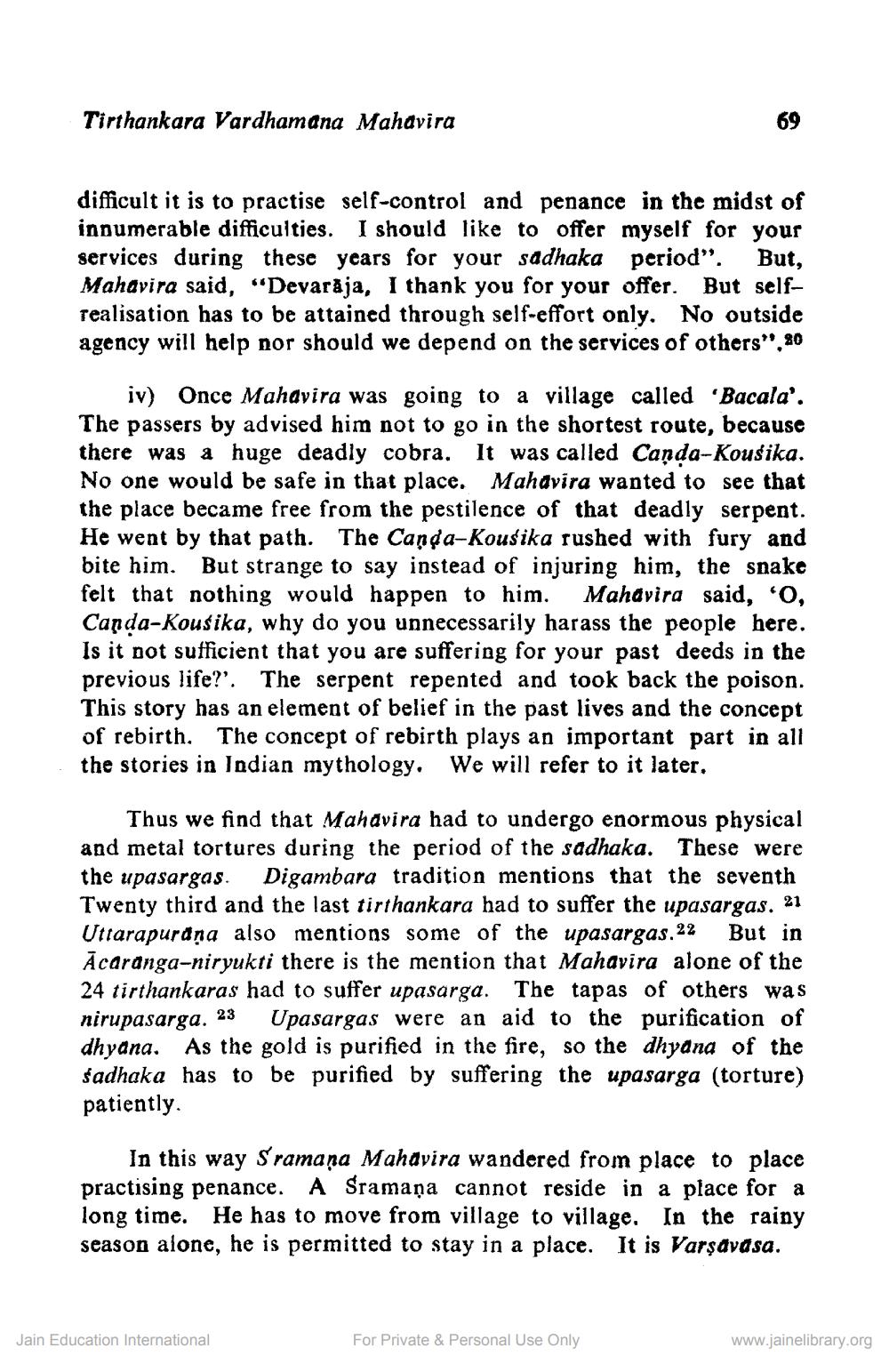________________
Tirthankara Vardhamana Mahavira
difficult it is to practise self-control and penance in the midst of innumerable difficulties. I should like to offer myself for your services during these years for your sadhaka period". But, Mahavira said, “Devaraja, I thank you for your offer. But selfrealisation has to be attained through self-effort only. No outside agency will help nor should we depend on the services of others”,80
iv) Once Mahavira was going to a village called 'Bacala'. The passers by advised him not to go in the shortest route, because there was a huge deadly cobra. It was called Canda-Kousika. No one would be safe in that place. Mahavira wanted to see that the place became free from the pestilence of that deadly serpent. He went by that path. The Canda-Kousika rushed with fury and bite him. But strange to say instead of injuring him, the snake felt that nothing would happen to him. Mahavira said, 'o, Canda-Kousika, why do you unnecessarily harass the people here. Is it not sufficient that you are suffering for your past deeds in the previous life?'. The serpent repented and took back the poison. This story has an element of belief in the past lives and the concept of rebirth. The concept of rebirth plays an important part in all the stories in Indian mythology. We will refer to it later.
Thus we find that Mahavira had to undergo enormous physical and metal tortures during the period of the sadhaka. These were the upasargas. Digambara tradition mentions that the seventh Twenty third and the last tirthankara had to suffer the upasargas. 21 Uttarapurana also mentions some of the upasargas.22 But in Acaranga-niryukti there is the mention that Mahavira alone of the 24 tirthankaras had to suffer upasarga. The tapas of others was nirupasarga. 23 Upasargas were an aid to the purification of dhyana. As the gold is purified in the fire, so the dhyana of the sadhaka has to be purified by suffering the upasarga (torture) patiently.
In this way Sramana Mahavira wandered from place to place practising penance. A Sramaņa cannot reside in a place for a long time. He has to move from village to village. In the rainy season alone, he is permitted to stay in a place. It is Varşavasa.
Jain Education International
For Private & Personal Use Only
www.jainelibrary.org




